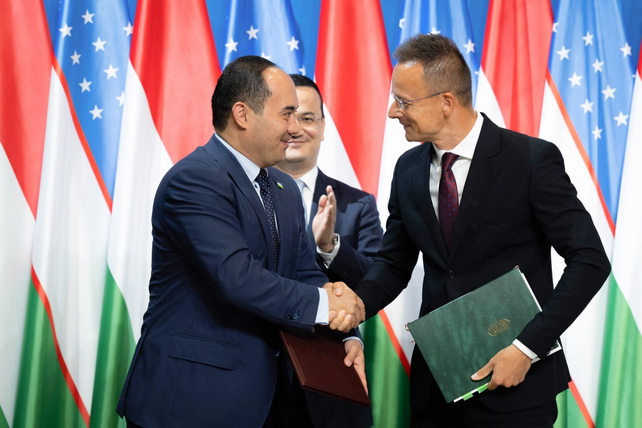
Hungary Expands Education Grant Program for Uzbek Students
Hungary Expands Education Grant Program for Uzbek Students
Tashkent, Uzbekistan (UzDaily.com) — On 17 July 2025 in Budapest, during the 10th meeting of the Uzbek-Hungarian Intergovernmental Commission on Economic Cooperation, an Additional Protocol was signed to the Memorandum of Understanding on the Stipendium Hungaricum scholarship program.
The protocol was signed by Shokhrukh Daliyev, First Deputy Minister of Higher Education, Science and Innovation of Uzbekistan, and Péter Szijjártó, Minister of Foreign Affairs and Trade of Hungary.
Under the new agreement, the annual quota for education grants for Uzbek citizens has been increased to 200. This step reflects the high level of bilateral cooperation and significantly expands opportunities for Uzbek youth to pursue quality education abroad, particularly at top universities in Hungary.
The Stipendium Hungaricum program has been available to Uzbek nationals since 2018. To date, over 400 Uzbek students have successfully studied at Hungarian universities, gaining both academic and personal development.
In response to growing interest from Uzbek applicants and the strengthening of bilateral ties, Hungary continues to gradually increase the quota. The scholarship fields are tailored to the needs of Uzbekistan’s economy. Students can choose programs in either English or Hungarian.
Importantly, Uzbekistan bears no financial obligations under the program. All expenses — including tuition, accommodation, health insurance, and monthly stipend — are fully covered by the Hungarian government. The only cost borne by the student is the airfare.
The Additional Protocol also includes provisions to ensure openness, transparency, and fairness in the selection process, making the program widely accessible to talented young applicants.
This agreement is strategically significant for Uzbekistan: it opens new paths for training highly qualified specialists, strengthens international cooperation in education, science, and innovation, and supports the professional development of teachers and the emergence of a new generation of skilled professionals.